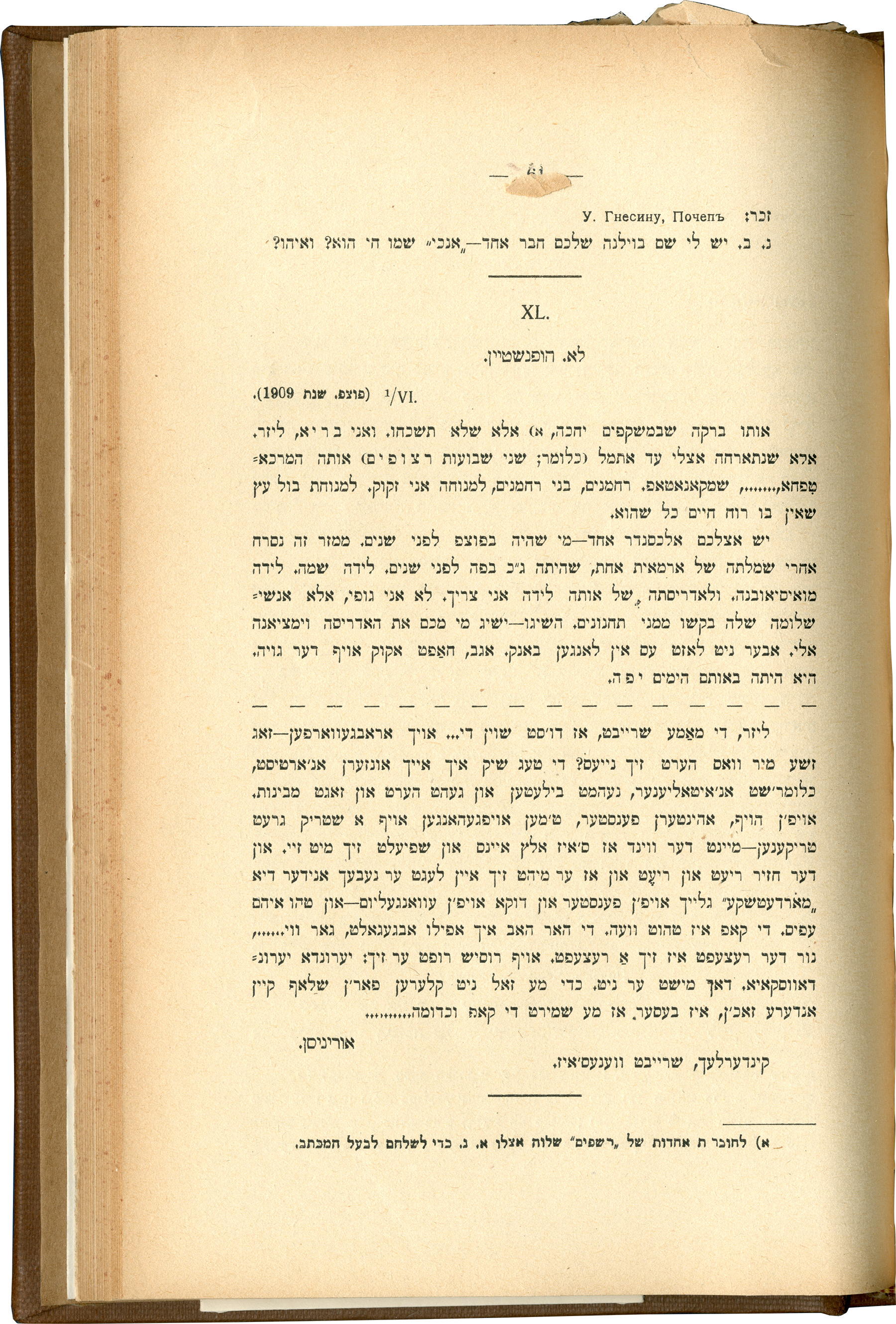What we see here is a short letter from Uri Nissan Gnessin (1879-1913), the praised Hebrew author, great artist of prose, to his friend, the Hebrew poet and literary critic Ya'acov Fichman (1881-1958), who was then the editor of the Hebrew Journal Ha-Olam (The World). Gnessin grew up in the small town Pochep in Belorussia, but traveled a lot throughout his short life. He is responsible for some of the greatest works of modern Hebrew prose, such as Be-terem (The time before) and Etzel (Beside). Along with his close friend Yosef Haim Brenner (1881-1921), he was one of a small group of writers that invested all their material and poetic efforts in order to turn Hebrew into a modern and vivid literary language. Gnessin suffered from a severe heart disease that caused his death in 1913, in Warsaw. His death shocked and saddened the small community of Hebrew writers of the time, and his friends quickly published a memorial collection of his letters and some eulogies, Ha-Tsidah (Sideways), edited by Brenner and printed in Vilna, 1914.
In this letter to Fichman from February 1909, Gnessin, who stays in his parents'; house in Pochep, humorously tries to justify why he did not write earlier, and why he did not yet send any literary writings to be published: "Honestly, my friend, Mother's bed is always soft to put me in a sweet sleep, and I am such a weak man, unfortunately, with such a strong drive ('yetser') . . . Fichman, Fichman! If you only knew how comfortable I am right now, and the fruit jams that awaits me there with the tea, which the children will surely lick away if I dawdle." These"innocent," childlike excuses reveal some of the deepest issues of his literary work: the struggles of writing, the weakness of the will and the strength of the drive, the seduction of passivity and the lure of familial relations.
